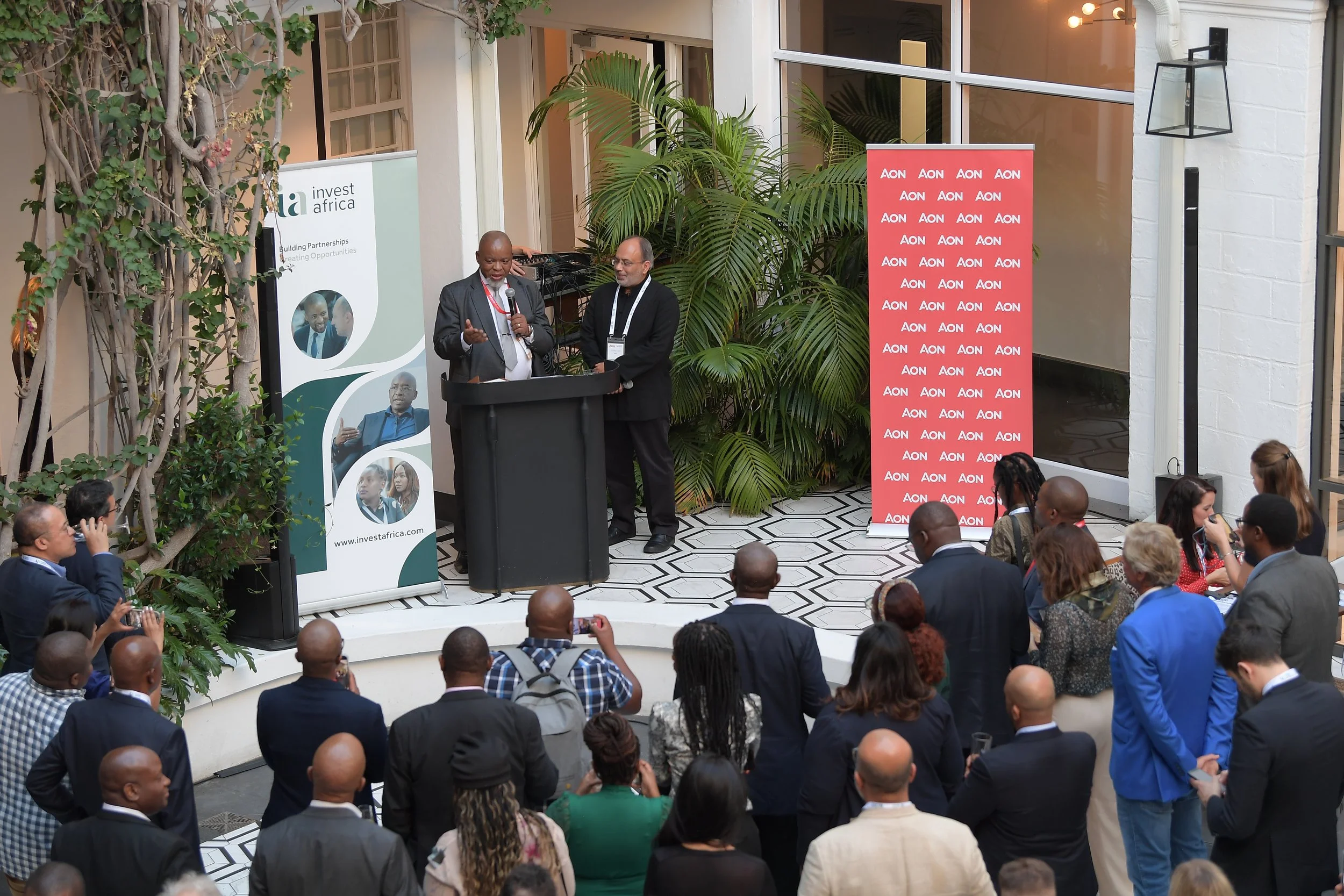Harnessing Africa’s Mining Potential
H.E. Gwede Mantashe, Minister of Mineral and Energy Resources for the Republic of South Africa in conversation with Dr. Carlos Lopes, Professor at the Nelson Mandela School of Public Governance, University of Cape Town.
Our 10th Annual Mining Series took place in Cape Town from 6 - 8 February, and it was a fantastic week meeting our members, making new connections, and together championing the importance of Africa’s mining industry.
Throughout the programme our speakers shared their insights on the huge potential for Africa’s mining sector for unlocking growth. The key theme which echoed throughout the week, was the key role Africa's critical mineral supply will play in enabling the global energy transition.
Extract from 10th Annual Mining Series Executive Summary
Safeguarding the Future: Critical Minerals & Rare-Earth Elements Breakfast Briefing
(left to right) Betrand Troiano, Senior Managing Director at FTI Consulting; Mohan Vivekanandan, Group Executive: Origination and Coverage at DBSA and Hein Reyneke, General Manager at Mainstream Renewable Power South Africa
Our panel discussed the challenges and opportunities within the critical minerals sector in Africa. Africa’s abundance of minerals presents huge potential to unlock capital within the mining sector. As alluded to by J. Peter Pham, Former U.S Special Envoy to the Great Lakes Region of Africa, “Africa has a unique role in critical minerals, and with the looming energy transition, there is enormous potential to capture the global value chain.”
However, despite a wealthy supply of critical mineral reserves, further exploration is needed in order to effectively unlock this opportunity, and stakeholders across the continent need to collaborate to harness their true potential. Victor Gonzalez, Director, Xcalibur Multiphysics, raised concern for countries not realising their full potential and the associated wasted opportunities. A key challenge is not all countries are set up to explore the resources, due to inadequate infrastructure and lack of policies, which presents risk factors to potential investors.
ESG: Towards Circularity and Net-Zero Breakfast Briefing
(left to right) Vincenzo Bellini, Director at Independent Energy Pool and Segun Lawson, Chairman and CEO at Thor Explorations
The main theme which echoed throughout the week, was the key role Africa’s critical mineral supply will play in enabling the global energy transition. However, whilst the continent has plentiful supply of minerals, a gap in investment, increased ESG regulations and pressure to meet energy transition goals, how can they leverage the demand to unlock growth?
Africa needs massive amounts of electrical power in order to industrialize with several rural areas lacking access to power, this is not possible to achieve without some reliance on fossil fuels. Mohan Vivekanandan, Group Executive: Origination & Coverage, Development Bank of Southern Africa reported that they now only invest in fossil fuel projects that are involved in the energy transition. The region doesn’t have the capital to subsidise the transition in the way the West can and costs for extracting renewable materials are higher than for fossil fuel, it presents the question of who should support the cost to decarbonization?
“Compared with other continents, the potential within Africa is enormous. This potential allows African countries to be much more strategic about how to unlock such potential.”
A major concern for the Africa’s mining sector is the new regulations and timelines that are put in place by western countries to achieve decarbonization. Kirsten Hund, Head of Carbon Neutrality, De Beers Group, shared the urgency to adhere to ESG for clients, the pressure for companies to meet increased regulation demands and the lack of infrastructure in place to adapt quickly to the changing needs. Investments into mining are not just about increasing profitability, they need to provide benefit to communities and job creation. The mining sector more than any other industry is able to make use of natural solutions to offset carbon emissions as an industry. DeBeers have Kelp farms off Namibia which not only absorb CO2 but the farming positively impacts the community by employing local farmers and creating products to sell.
The implementation of Scope 3 highlights the need to localise supply chains to avoid the indirect sources of emissions from importing materials. An additional concern for the mining industry is the hesitation to add the cost of investment on to balance sheet for renewable energy projects.
Click the button below for the full report.



